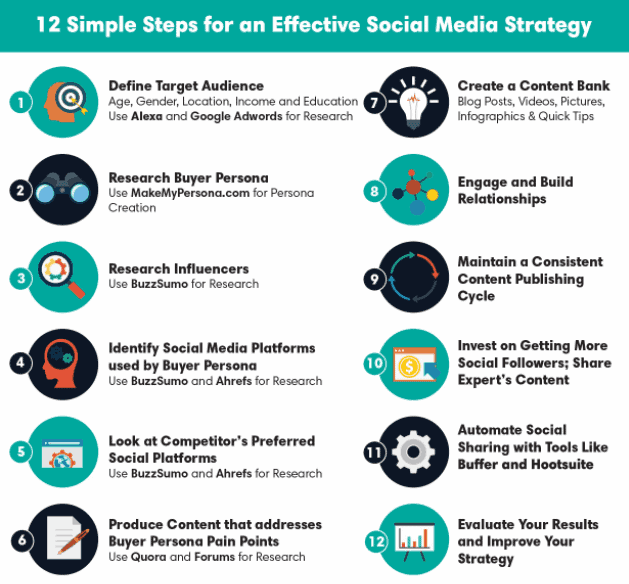Discover the hidden gems of marketing as we unveil 10 unique strategies guaranteed to revolutionize your brand’s success.

Image courtesy of Pixabay via Pexels
Table of Contents
- Understanding Your Target Audience
- Building an Effective Brand Identity
- Choosing the Right Marketing Channels
- Nurturing Customer Engagement
- Implementing SEO Best Practices
- Harnessing the Power of Influencer Marketing
- Data Analysis and Performance Measurement
- Staying Up-to-Date with Marketing Trends and Innovations
- Conclusion
Marketing is a critical aspect of any business, and having a well-defined strategy is key to success. But with so many different tactics and techniques out there, it can be overwhelming to know where to start. That’s why we’re here to help. In this blog post, we’ll uncover some unique and wildly effective marketing strategies that you may not have come across before. Get ready to take your marketing game to the next level!
Understanding Your Target Audience
Before diving into any marketing campaign, it’s crucial to have a deep understanding of your target audience. Conducting thorough market research allows you to gain valuable insights and tailor your strategies accordingly. Creating customer personas is a powerful tool to help you understand your customers better. By developing fictional representations of your ideal customers, you can align your marketing efforts with their preferences, motivations, and pain points.
Book Now For a Free Consultation
In addition, utilizing analytics tools can provide you with data-driven decision-making capabilities. By analyzing metrics such as website traffic, bounce rate, and conversion rates, you can fine-tune your marketing strategies for optimal results.
Building an Effective Brand Identity
An effective brand identity is crucial for making a lasting impression on your target audience. Begin by crafting a compelling brand story that resonates with your audience. This narrative should effectively communicate your values, mission, and unique selling points. It’s the story that sets you apart from your competitors and creates an emotional connection with your customers.
Designing a memorable and visually appealing brand logo is also essential. Your logo is a visual representation of your brand and should be instantly recognizable and reflective of your values. Maintaining consistency in terms of colors, typography, and messaging across all customer touchpoints builds credibility and trust.
Choosing the Right Marketing Channels
The success of your marketing efforts greatly depends on the channels you choose to reach your target audience. Start by evaluating different marketing channels such as social media, email marketing, paid ads, and content marketing. Understanding your audience demographics will help you narrow down the channels that are most likely to resonate with them.

Image courtesy of via Google Images
Once you’ve identified the right channels, focus on creating valuable and engaging content. Whether it’s blog posts, videos, infographics, or podcasts, the key is to produce content that educates, entertains, or solves problems for your audience. Consistency and quality are crucial in content creation. Distribute your content through multiple channels and measure its performance to see what works best.
Nurturing Customer Engagement
Building strong customer engagement is a vital aspect of a successful marketing strategy. Social media platforms play a significant role in capturing and nurturing customer engagement. Develop a strong online presence by crafting compelling social media profiles that reflect your brand identity.
In addition to social media, email marketing is a powerful tool for staying connected with your customers. Create personalized and relevant email campaigns that provide value to your subscribers. Proactively encourage customer feedback and respond promptly to show your audience that their opinions are valued.
Implementing SEO Best Practices
Search Engine Optimization (SEO) plays a crucial role in increasing your online visibility and driving organic traffic to your website. Begin by conducting thorough keyword research to identify the most relevant and high-ranking keywords in your industry. Optimize your website content, including meta-tags, headers, and alt-text, to align with these keywords.

Image courtesy of via Google Images
Website structure and user experience also impact SEO. Ensure your website has a user-friendly design, easy navigation, and fast loading times. Investing in building backlinks from reputable websites within your industry can significantly boost your SEO performance.
Harnessing the Power of Influencer Marketing
Influencer marketing has exploded in recent years, and for a good reason. Collaborating with influencers who have a significant following and target audience overlap can expose your brand to new potential customers. Start by identifying influencers within your target market and assess their engagement levels, authenticity, and relevance to your brand.
Once you’ve established a connection with influencers, work on building genuine relationships with them. This can be achieved through sponsored content, product reviews, or brand collaborations. Monitor and measure the effectiveness of your influencer campaigns to ensure a positive return on investment.
Data Analysis and Performance Measurement
Data analysis is vital in understanding the effectiveness of your marketing efforts. Define the key metrics that align with your business objectives and regularly track and analyze them. Google Analytics is a powerful tool to help you gather and interpret data.

Image courtesy of via Google Images
Making data-driven decisions based on your analysis will allow you to identify areas of improvement and optimize your marketing strategies accordingly. Continually monitoring and measuring your performance empowers you to adapt and refine your tactics for the best possible outcomes.
Staying Up-to-Date with Marketing Trends and Innovations
The marketing landscape is constantly evolving, and staying informed about the latest trends and innovations is essential to remain competitive. Keep an eye on industry updates, emerging technologies, and new marketing tools that can enhance your strategies.
Attending marketing conferences and webinars is an excellent way to gain valuable insights and network with industry professionals. Engaging in discussions and communities can also offer new perspectives and ideas to keep your marketing efforts fresh and innovative.
Conclusion
Incorporating these unique and effective marketing strategies can take your marketing efforts to new heights. Remember, understanding your target audience, building a strong brand identity, choosing the right channels, nurturing customer engagement, implementing SEO best practices, harnessing the power of influencers, analyzing data, and staying up-to-date with industry trends are all crucial components of a successful marketing strategy.
By constantly learning, adapting, and incorporating these strategies into your marketing efforts, you’ll be able to connect with your audience on a deeper level and achieve marketing success.